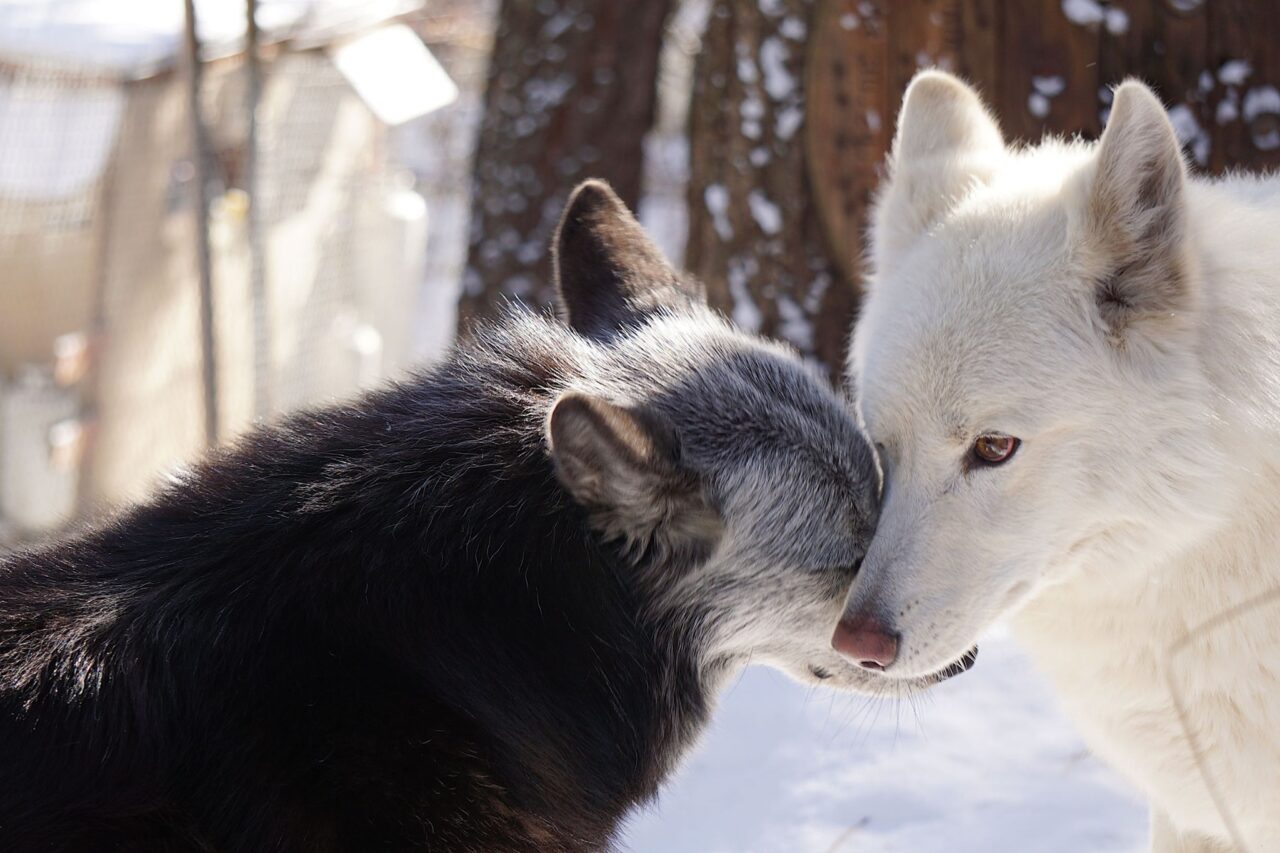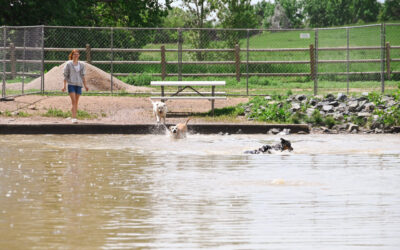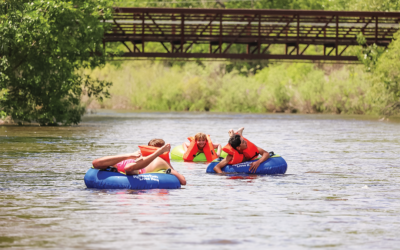W.O.L.F. Sanctuary relocates to Red Feather Lakes, raises funds for facility improvements and ongoing wolf dog care
If you’ve ever seen a dog with wolf-like characteristics and wondered if it was indeed part wolf, well, you may be right. Wolf dogs—a result of unscrupulous crossbreeding between wolves and domesticated dogs—aren’t all that uncommon. In fact, many end up in unsuspecting homes with owners who don’t know how to properly care for them, or worse, in neglectful or abusive situations where they need to be rescued.
Rescuing wolf dogs
The W.O.L.F. (Wolves Offered Life & Friendship) Sanctuary was founded in 1995 to provide a lifelong safe haven for rescued wolf dogs in Colorado. Even if the animals have a high wolf content, they can’t be released into the wild, says executive director Dr. Shelley Coldiron, because they were born into captivity (often to captive-born parents) and no longer have a pack to depend on. Some breeders even take them away from their mothers before they open their eyes.
“In the wild, wolves have a family pack of grandmothers, sisters and brothers that help the puppies learn how to work with the pack,” Coldiron says. “[Wolf dog breeders] set them up to fail because they don’t let them learn their proper social structure or communication or any way to take care of themselves…. We throw them in our domestic world, and they don’t quite fit there either.” 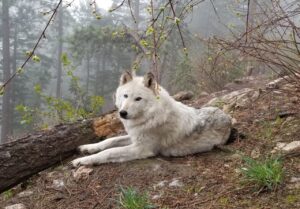
Many wolf dogs are surrendered by their owners because they exhibit behaviors that make caring for them in a modern household challenging. Coldiron says some are very prey-driven, causing issues with cats and small dogs, and their high intelligence means they need enrichment and stimulation. Since wolves are pack animals, wolf dogs don’t like to be alone. They need a companion.
“Keeping them domestically requires some extra education and care and commitment on people’s behalf,” Coldiron says. “One time, I was walking down the streets of Loveland, and a guy was sitting outside. I walked by and said, ‘Oh, what a beautiful wolf dog,’ and he said, ‘No, it’s not a wolf dog.’ I said, ‘Yeah, it is, and thank you for having it. I hope you can take good care of it. You’ve done well socializing it.'”
A new home
The W.O.L.F. Sanctuary is currently home to 30 rescued wolf dogs, with a brand new facility near Red Feather Lakes that opened last September. The move was spurred by the High Park Fire, which tore through the old facility in Rist Canyon in 2012 and led Coldiron, a volunteer at the time, to step up as executive director. No animals were lost to the fire, though the damage to the property and its inconvenient, hidden location made it clear that the animals needed a new home.
The sanctuary secured the new property in 2016 and went through various studies to get a special use permit. The COVID-19 pandemic delayed the process, and a lot of the money that had been raised for additional infrastructure was eaten up by skyrocketing building costs during habitat construction. Still, they were able to relocate all the animals.
“We put them in pairs, usually male and female, but we have two sisters who grew up together,” Coldiron says. “They have about a half-acre per pair. Where we were located before was in a steep ravine. This is wide open, and they just love it.”
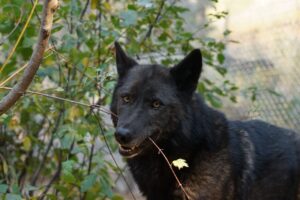
Coldiron and her team have other dreams for the sanctuary, one of which is to be able to open to the public and educate people about the importance of wolves as a keystone species in nature as well as the problems that arise with unethical breeding.
They also hope to get a permit to house more than 30 wolf dogs at the new facility. Coldiron receives pleas from organizations and shelters around the country that need help rehoming wolf dogs, and she helps hundreds of animals find safe homes, even if they don’t end up at the sanctuary.
“We estimate that, because it’s unregulated, over 200,000 of these animals are euthanized each year because there aren’t enough places like ours,” Coldiron says.
Get involved
Although the W.O.L.F. Sanctuary has a new location, the organization still needs funding to build out its amenities, including the infrastructure for a meat processing facility, onsite vet clinic, visitor center and office space for staff and volunteers. They also hope to purchase another ATV to help them get around the property. Donations can be made online at wolfsanctuary.co., and for those who want to give their time, volunteer applications can be submitted at wolfsanctuary.co/volunteer.


